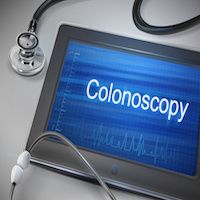Article
USPSTF Updates Guidelines for Colon Cancer Screening
Author(s):
Healthcare professionals have long encouraged adults 50 years of age and older to regularly screen for colon cancer.

Healthcare professionals have long encouraged adults 50 years of age and older to regularly screen for colon cancer.
Colon cancer is the second leading cause of cancer death in the US; in 2016 alone, approximately 134, 000 individuals will be diagnosed with the condition, and nearly 49,00 will die from it.
In an effort to update the 2008 colorectal cancer screening recommendations, The US Preventative Services Task Force (USPSTF) reviewed expert evidence surrounding the efficacy of non-colonoscopy screening strategies, including:
· Flexible sigmoidoscopy (far less invasive than colonoscopy)
· CT colonography
· Traditional fecal occult blood tests
· Cologuard DNA-based stool test
The USPSTF aimed to understand different screening methods that would potentially contribute to a reduction in the incidence of and mortality from colorectal cancer. The researchers also assessed the potential harms associated with these tests, as well as overall test performance.
A former Task Force member, Douglas Owens, MD, said in a news release, “There are multiple screening options for colorectal cancer that reduce the risk of dying from the disease. We encourage people to choose the best option for them, in consultation with their clinician.”
Prior to updating the guidelines, the panel of experts explained there weren’t any comparison studies suggesting one screening method to be more effective than another. Each method has its own set of advantages and limitations.
Researchers did point out that the recommendations were specific to patients who have been symptom-free with only an average risk of colorectal cancer.
Patients with disorders or medical histories correlated to higher risk of cancer are urged to seek intensive screening methods.
According to Owens, “Evidence convincingly shows screening for colorectal cancer works, but not enough people are taking advantage of this highly effective service.”




